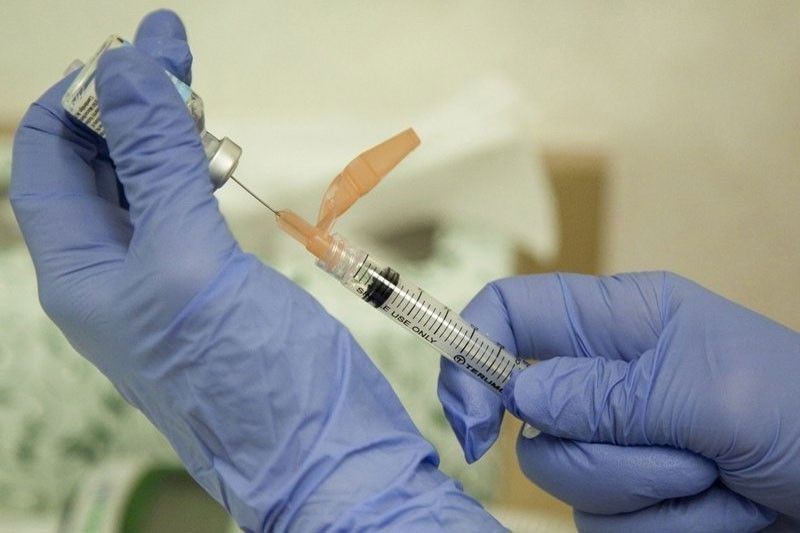DOH: 110 vaccines eyed vs COVID

MANILA, Philippines — There are now 110 candidate vaccines for the coronavirus disease 2019 (COVID-19) around the world, which the Department of Health (DOH) is eyeing to be given primarily to “vulnerable” sectors of the country’s population once the vaccines become available.
The Philippines is presently participating in the solidarity trial of the World Health Orgnization (WHO) for vaccines against the virus.
“We are trying to coordinate with different international companies right now. We are also in talks with the WHO because they are coming up with the solidarity trial and we would like to join so that the Philippines will have an opportunity once a vaccine is developed,” Health Undersecretary Maria Rosario Vergeire said during the virtual Kapihan sa Manila Bay media forum yesterday.
It will always be the vulnerable that are given priority when it comes to such matters, according to Vergeire.
“It is not to say that we don’t take care of the others, but when we have limited resources, we prioritize the vulnerable group of people, especially if there are evidence that this will give benefits to the government or the population,” she said.
Vergeire could not say who would be considered vulnerable when it comes to the vaccines.
For mass testing, however, considered susceptible are the elderly, pregnant women, those with symptoms, those who were exposed to the virus, contacts of infected individuals, healthcare workers and overseas Filipino workers.
“OFWs are prioritized because they are coming home from countries where there is transmission of cases. Because of this, they are considered vulnerable groups. Of course the frontliners... are being prioritized when it comes to testing,” Vergeire said.
University of the Philippines-National Institutes of Health’s Vaccine Study Group head Lourdes Bravo, however, expressed concern at the speed that COVID-19 vaccines are being developed.
“You cannot say that you can have the vaccine in one year or maybe even two years because we don’t know how this vaccine will act. If you listen to the many reports on the vaccine, there are vaccines that give antibodies – yes, but will these antibodies really care for actually protecting (patients)?” said Bravo, executive director of the Philippine Foundation for Vaccination.
She cited that malaria vaccine has been undergoing development for more than 100 years “and still, we don’t have the vaccine. The same goes for vaccine against HIV, which has not been developed after more than 40 years.”
There might be some safety issues if the period for vaccine development is shortened, according to Vergeire.
Mandatory immunization
A ranking lawmaker yesterday pushed for the proposed mandatory immunization program to prevent future health crises in the country like the COVID-19 pandemic.
House health committee chair Angelina Tan cited the importance of pursuing the program as she vowed more legislative measures to help ensure the safety and protection of children from diseases.
“We have several initiatives in Congress in relation to the country’s immunization program. We are pushing for the creation of the NITAG, a national immunization advisory board, and we are trying to adopt a school-based immunization program that will benefit our students,” Tan said at the same virtual media forum attended by Vergeire yesterday.
The Quezon representative also reiterated her call for an open and competitive bidding process in procuring vaccines.
Tan explained that in the immunization program, it is important to ensure that the procurement of vaccines is done in such a way that no single manufacturer is favored and that specifications in bidding should not favor a single brand.
Late last year, the DOH suspended a call for bidding for pneumococcal conjugate vaccines (PCVs) after medical experts noted that the bidding favored a single manufacturer.
Vergeire said the DOH suspended the bidding for PCVs after new evidence that they need to look into more carefully was presented.
“(The Health Technology Assessment Center) is reviewing the procurement, which is really the right process. We will not end the program. We’re just waiting for the recommendation of HTAC,” she said.
The DOH had previously requested the HTAC to review the National Immunization Program, particularly the Pneumococcal Vaccination Program for children, in light of new 2017 and 2019 evidence from the WHO.
In February 2019, the WHO reaffirmed this earlier position that the two available PCVs in the market – PCV10 and PCV13 – are equally effective in preventing overall pneumococcal diseases in children.
The position paper also stated that at present, there is insufficient evidence of a difference in the net impact of the two available PCVs on overall disease burden.
“Both vaccines exist. If the health assessment proves that both PCV10 and PCV13 have the same effects, then we need to go through a procurement process that’s open and competitive so the government can save on costs,” Tan said. Edu Punay
- Latest
- Trending


























